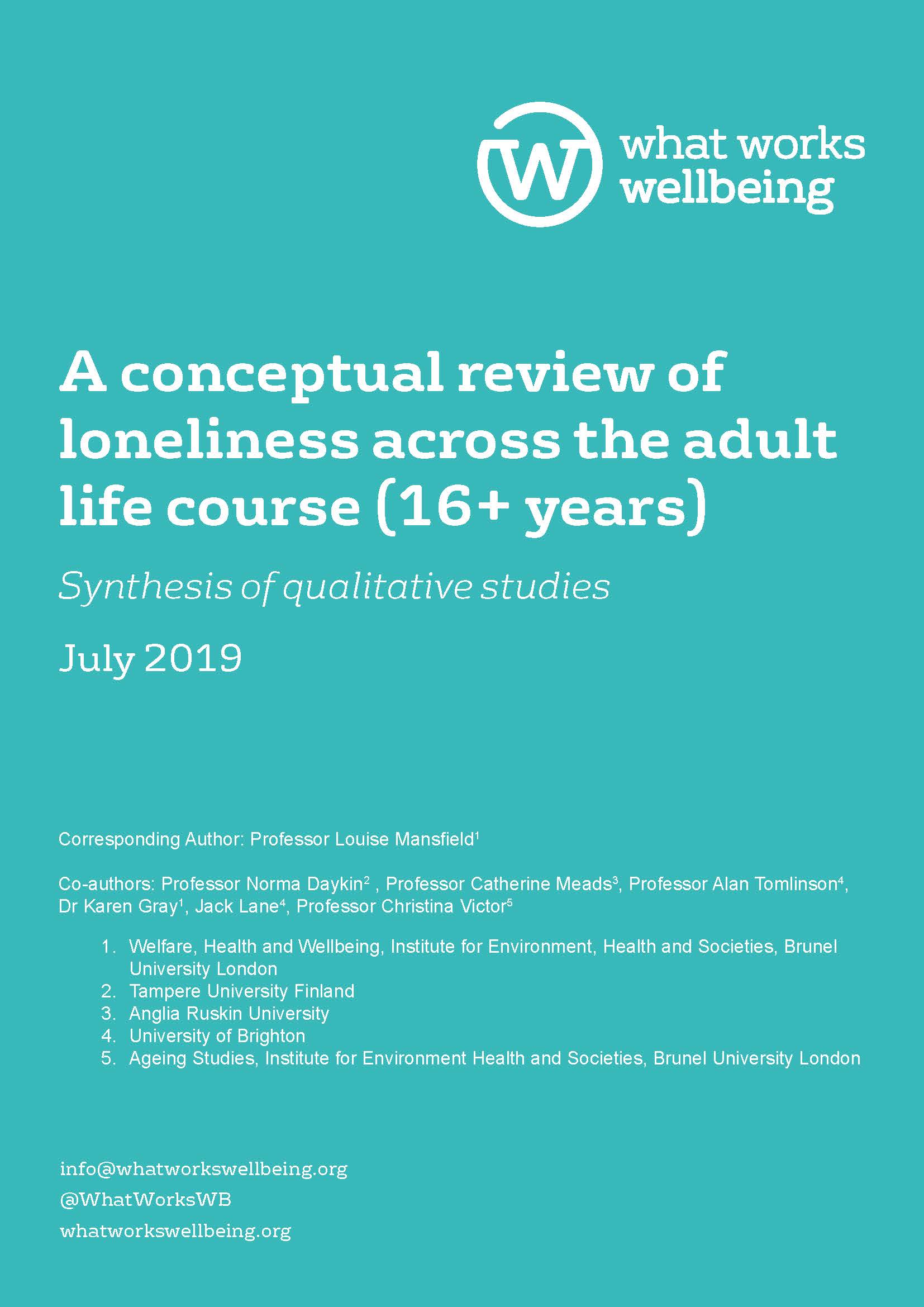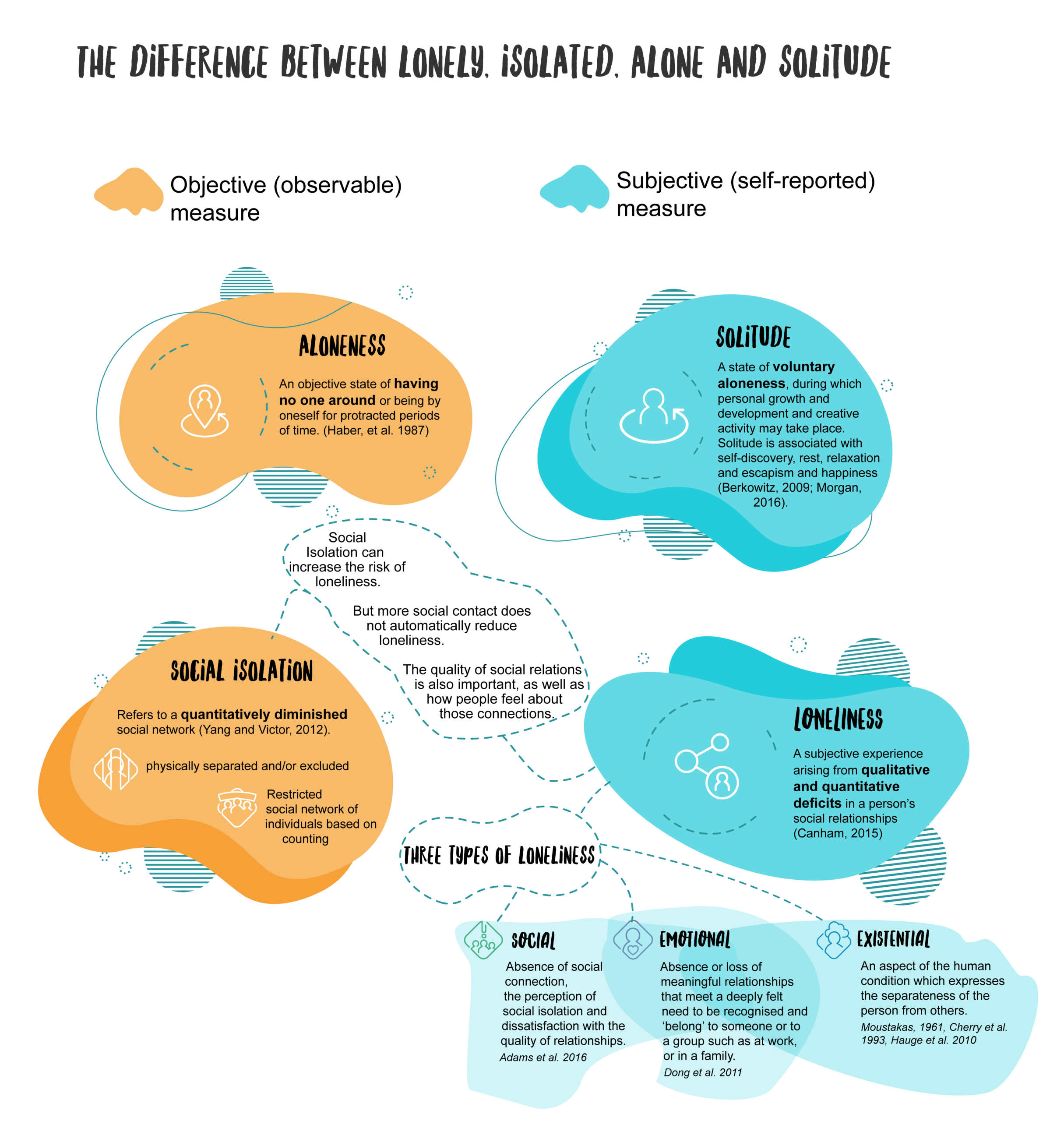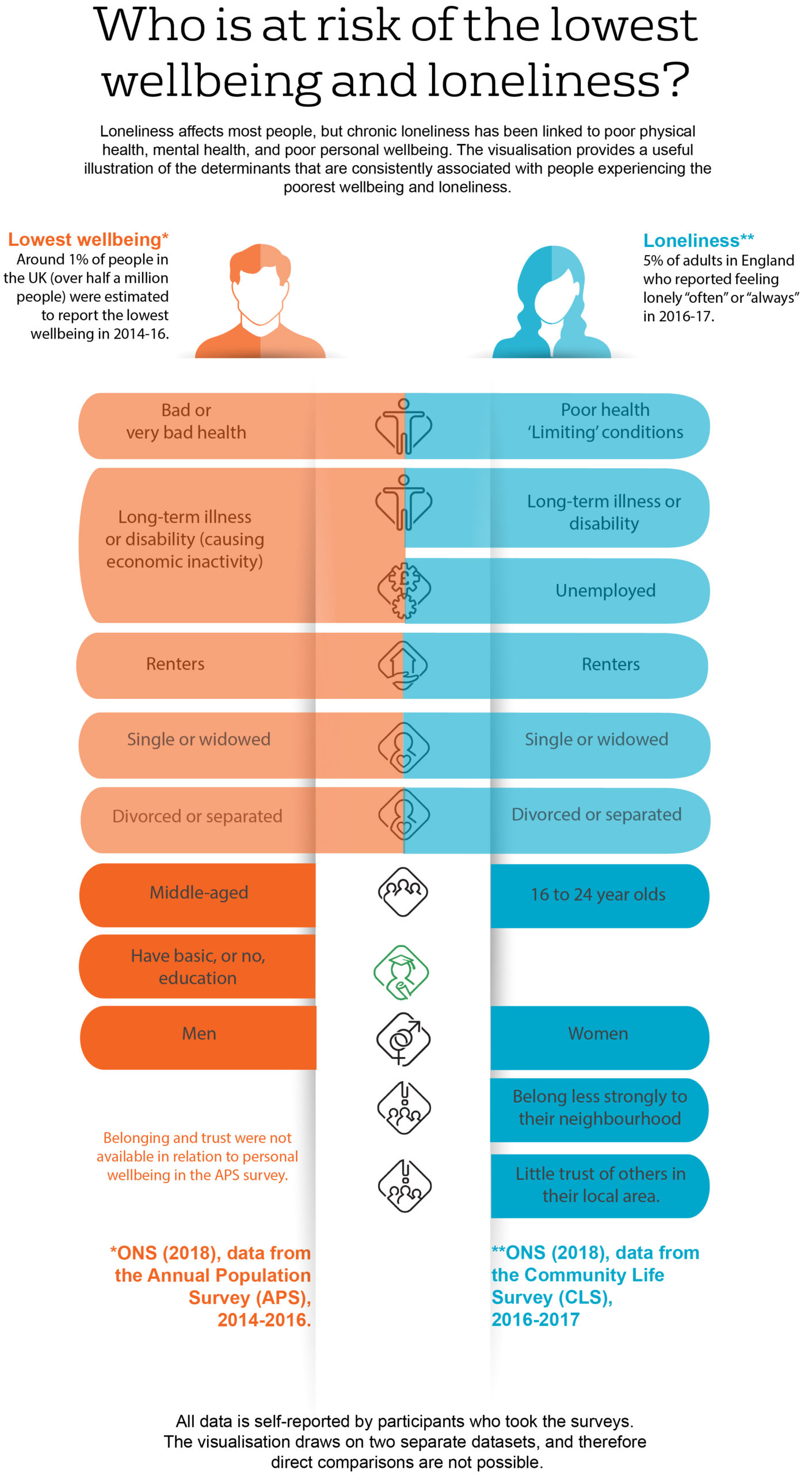Loneliness Conceptual Review
Downloads

Intro
We know that loneliness has negative impacts on how we feel about ourselves and people around us and it can have harmful effects on our physical and mental health. Yet loneliness is a complicated subject.
Loneliness is conceptually and empirically distinct from social isolation, and to a range of deep and sometimes long-last negative feelings. Sometimes it is viewed more positively in terms of solitude and a chance to escape from the pressures of life. It is often difficult for people to talk about loneliness and it is reported in different ways by researchers, policy makers and practitioners.
This review is needed because the evidence on loneliness is scattered and tends to be focused on single population groups, and most often considers older people only. There is a lack of clarity about definitions of loneliness and related concepts, and how they should be evaluated, measured and applied in policy and practice.
The review topic was agreed with organisations who work on the national policy for loneliness in the UK, as well as those who manage, deliver and research it.
Aims
Studies included
Key findings
What does this mean in practice?
Downloads
![]()
[gravityform id=1 title=true description=true ajax=true tabindex=49]







